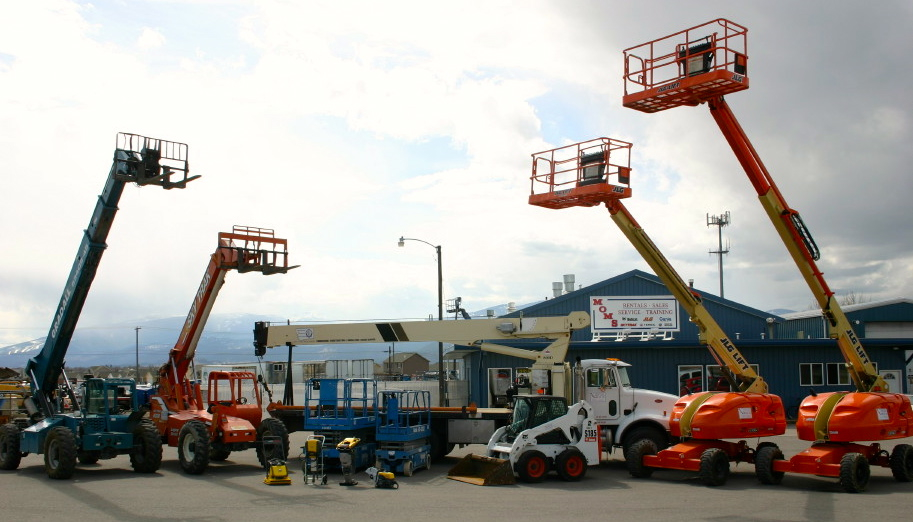Heavy Equipment Rental: Huge Machinery for Any Kind Of Construction Project
Heavy Equipment Rental: Huge Machinery for Any Kind Of Construction Project
Blog Article
Optimize Your Spending Plan by Recognizing the Prices Associated With Construction Tools Services
Recognizing the complete range of costs associated with construction devices services is essential for optimizing your budget plan. What techniques can be employed to efficiently take care of these expenses and make sure a much more efficient rental experience?
Overview of Rental Costs
When taking into consideration building tools services, recognizing the associated prices is paramount for effective budgeting and job preparation. Rental costs can differ significantly based upon numerous elements, consisting of devices type, duration of service, and area. The initial rental charge usually shows the devices's market demand and its linked operational capabilities, influencing the total expense.
Along with the base rental rate, ancillary costs may develop, such as transport charges, fuel surcharges, and upkeep fees. It is vital to make up these additional expenditures to properly assess the overall cost of leasing tools. In addition, the rental duration can impact prices; longer services might certify for reduced prices, while temporary leasings might sustain higher daily fees.

Breakdown of Rental Prices
An extensive understanding of rental rates is necessary for contractors and project supervisors aiming to optimize their budgets. Rental prices for construction equipment typically are composed of several components, consisting of base rates, time-based charges, and use costs.
Base prices are the core costs linked with the service of the tools, commonly figured out by the type and size of the machinery. These rates can vary considerably, affected by elements such as equipment demand, schedule, and regional market patterns. Time-based charges, which might be daily, weekly, or monthly, offer to fit different project timelines and rental durations.
Furthermore, rental rates might consist of usage costs, which are applicable when equipment is used past a defined limit, making certain that the rental company can account for deterioration. Seasonal need variations can additionally affect rental prices, with peak building periods usually commanding greater prices.
Furthermore, understanding the rental firm's plans regarding upkeep and insurance can provide further insight right into the general price framework. By evaluating these parts, contractors can make informed decisions, guaranteeing the selection of rental equipment straightens with both task demands and spending plan restrictions.
Additional Costs to Consider
Understanding the details of additional fees is vital for contractors to manage their general service expenses effectively. Past the basic rental rates, various auxiliary fees can dramatically influence the complete expense of tools leasing. These costs typically consist of distribution and pick-up fees, which can vary based on distance and logistics entailed in carrying the devices to and from the job website.
Furthermore, some rental firms might impose small pile driving equipment gas additional charges if the equipment is returned with much less gas than when leased. It is likewise important to understand prospective cleansing fees, specifically for specific equipment that calls for extensive upkeep after usage.

Completely assessing the rental agreement and making clear these extra fees in advance can aid find out here service providers make certain and stay clear of unexpected expenses that budgets continue to be intact throughout the job lifecycle.
Upkeep and Fixing Expenses
Regular repair and maintenance expenses are frequently neglected factors that can dramatically influence the total cost of construction tools services. When renting out equipment, it is essential to think about not just the rental costs yet also the possible expenses related to maintaining the equipment in ideal operating condition.
Lots of rental business include standard maintenance as part of the rental arrangement; however, more extensive fixings or unforeseen break downs can cause added costs. It's vital to examine the rental contract meticulously to recognize what maintenance services are covered and what duties drop on the occupant.
In addition, devices that is not well-kept can lead to inefficiencies at work site, potentially causing delays and increasing job prices. To alleviate these threats, it is advisable to conduct routine inspections and maintain open interaction with the rental service provider relating to any kind of issues that emerge throughout use.
Insurance and Responsibility Prices
Insurance policy and liability costs are crucial parts that can dramatically affect the overall expense of building and construction equipment services (forklift rental). These prices make certain that both the rental company and the client are secured from possible economic losses emerging from accidents, damage, or theft during the rental period

In addition, clients must know any kind of deductibles or exclusions in the insurance coverage, as these can influence prospective out-of-pocket expenditures. Comprehending the terms of any insurance policy protection is important to avoid unforeseen expenses. Eventually, budgeting for insurance coverage and liability costs can assist ensure a smoother rental experience and safeguard versus financial risks related to building and construction jobs.
Conclusion
Finally, a comprehensive understanding of the prices connected with construction tools rentals is vital for effective budget plan monitoring. By assessing rental rates, extra charges, upkeep costs, and insurance needs, organizations and individuals can reduce unexpected expenses. This strategic strategy not only enhances cost-effectiveness but also guarantees that projects proceed efficiently and effectively. Inevitably, informed decision-making pertaining to devices rentals adds to the general success of construction ventures.
Rental costs can differ dramatically based on numerous factors, consisting of devices kind, duration of rental, and area (forklift rental). The rental period can impact prices; longer rentals might certify for affordable prices, while short-term rentals may sustain greater everyday charges
By conducting complete research and engaging with credible rental business, specialists can efficiently navigate the intricacies of rental pricing, inevitably maximizing their monetary sources.
Beyond the typical rental rates, different additional fees can significantly affect the complete cost of devices service. Rental companies typically give responsibility insurance policy that covers injuries to third celebrations or damages to residential or commercial property, while tools damages insurance can cover the expense of fixings or substitute if the rented devices is harmed.
Report this page